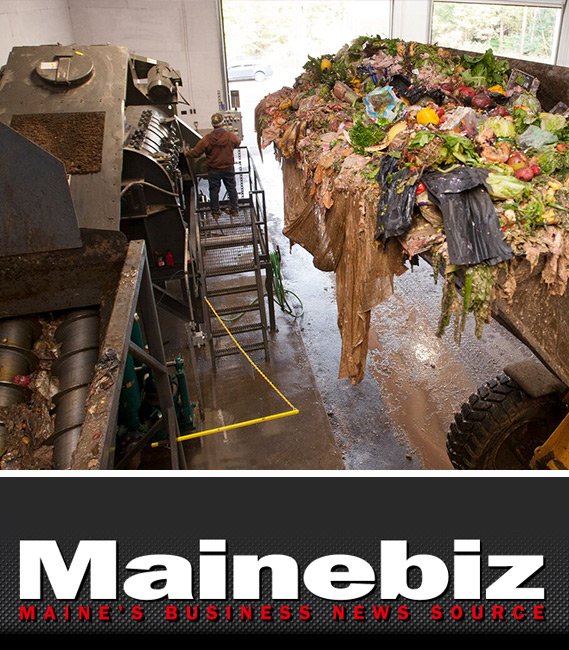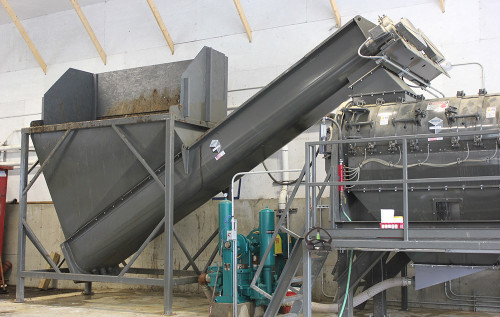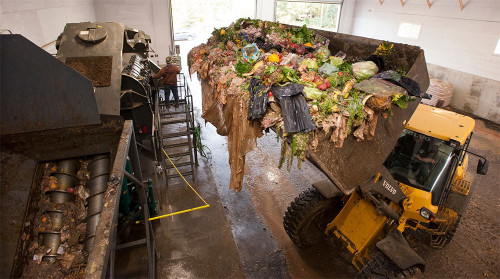Mainebiz recently interviewed Dan Bell (Agri-Cycle) and Adam Wintle (of our sister company, Exeter Agri-Energy) about the recent completion of our processing plant, including Maine’s first depackager, and recognized the potential for reducing waste going to landfills:
The recent completion of a $1 million food waste processing plant — featuring Maine’s first “de-packager” that separates discarded, damaged or expired food products from their boxes, cans or cartons — puts both companies in a strong position to capitalize on a growing national movement to reduce the amount of food going into landfills. The de-packager makes it feasible for supermarkets, hospitals, food manufacturers and even municipalities to send food waste to Exeter knowing that it will become a source of renewable energy instead of buried garbage rotting in a landfill.
In September of 2015, the Environmental Protection Agency and the Department of Agriculture set the United States’ first-ever national food waste reduction goal, which calls for a 50% reduction by 2030. The new Agri-Cycle depackager greatly helps advance efforts to meet that goal. In fact, Hannaford has contracted with Agri-Cycle to help move toward their goal of “zero food waste.”
The de-packager’s ability to efficiently separate packaging from expired or damaged foods has already benefited Hannaford, which has 188 stores in Maine, New Hampshire, Massachusetts, Vermont and New York and is one of Agri-Cycle Energy’s primary customers.
The Scarborough-based supermarket chain received the Grocery Stewardship Certification from the Manoment Center for Conservation Sciences in early 2015 for its sustainability practices, which included the diversion of 125 million tons of waste from landfills that prevented more than 430 million pounds of greenhouse gases from being emitted. Company spokesman Eric Blom says the company’s efforts to reduce food waste include “making sure we don’t carry more inventory than we need” and donating to local food banks still-usable items that for various reasons can no longer be kept on its shelves.
“The de-packaging has always been the most challenging aspect for us in moving forward on our zero food waste goals,” he says. “You simply can’t open up every expired food package every day at every one of our stores. It’s just not feasible.”
FMI: Read the complete Mainebiz article



